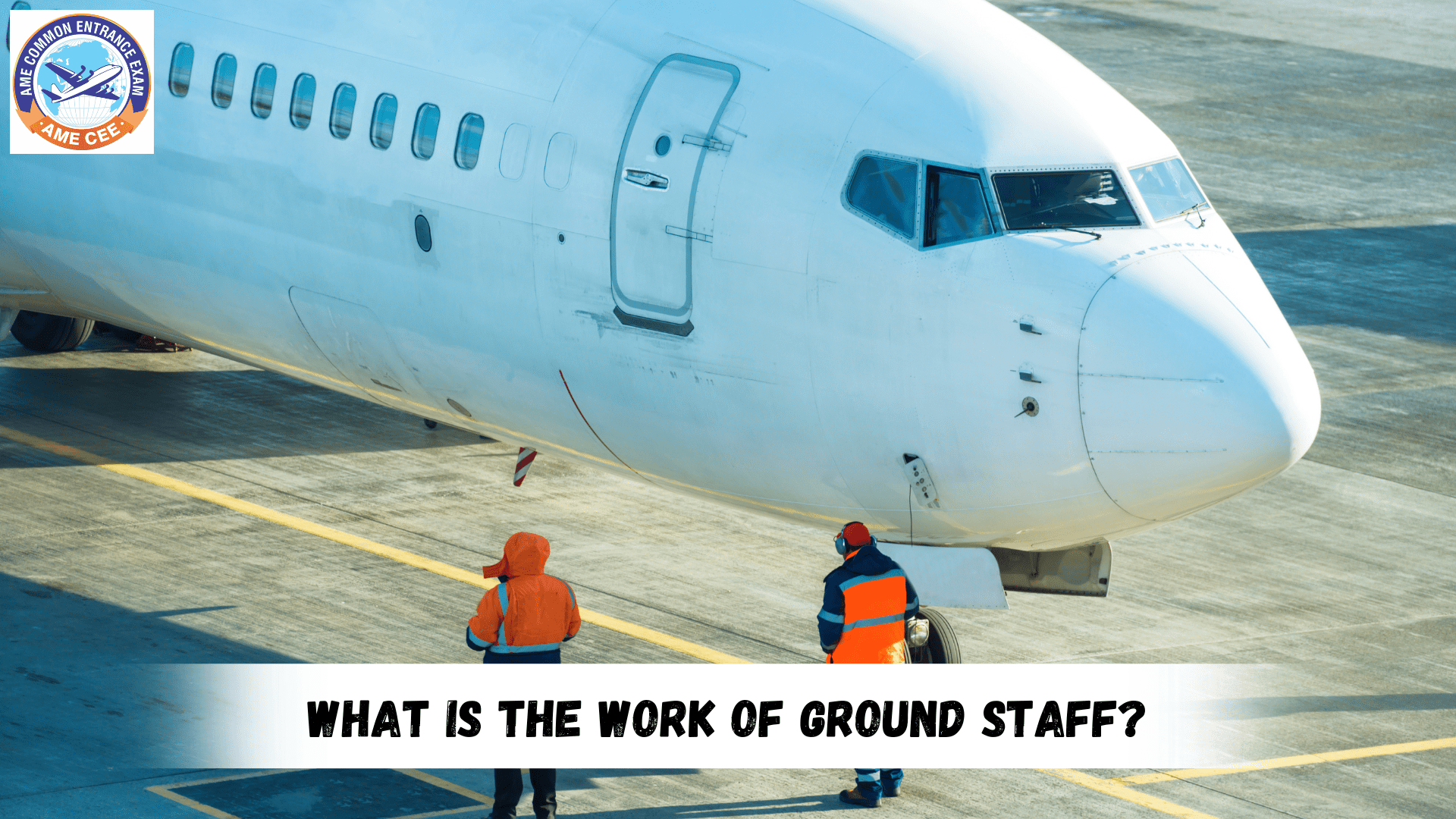In the world of aviation, ground staff plays an indispensable role in ensuring the smooth functioning of airport operations. While passengers are often focused on their in-flight experience, the hard work of ground staff behind the scenes ensures that flights depart on time, luggage is safely loaded, and customer service is top-notch.
1. Introduction to Ground Staff
Airport ground staff refers to the personnel working at airports who are responsible for ensuring that the essential tasks related to flight operations are carried out efficiently on the ground. From handling baggage to ensuring the safety of passengers and aircraft, ground staff are essential in making sure that the entire travel process runs smoothly. They support both the airline’s operational activities and provide direct service to passengers.
2. Roles and Responsibilities of Ground Staff
Check-in and Boarding Assistance
One of the key responsibilities of ground staff is assisting passengers during the check-in process. This includes:
- Verifying travel documents (such as passports and visas)
- Checking baggage
- Assigning seats to passengers
- Issuing boarding passes
- Providing information about flight schedules or gate changes
During boarding, ground staff ensure that passengers board in an organized and timely manner. They also assist with priority boarding for passengers who need extra help.
Baggage Handling and Loading
Ground staff are responsible for handling passengers’ checked baggage. Their duties include:
- Receiving and tagging baggage
- Loading and unloading luggage from aircraft
- Transporting baggage to and from the aircraft using specialized equipment like conveyor belts and trolleys
- Ensuring that baggage is correctly loaded in the aircraft’s cargo hold and that it’s safely offloaded at the destination
They also track lost or delayed baggage and provide assistance to passengers in these situations.
Aircraft Handling and Maintenance Support
Before and after a flight, ground staff perform critical tasks related to aircraft preparation and maintenance. These tasks include:
- Marshaling aircraft into position at the gate
- Refueling the aircraft
- Assisting in aircraft cleaning and cabin preparation for new passengers
- Performing minor repairs and maintenance checks if necessary
- Ensuring that aircraft are equipped with necessary supplies (e.g., water, catering, etc.)
These responsibilities contribute significantly to the safety, efficiency, and comfort of flights.
Ground Security
Ensuring the safety of passengers and crew on the ground is a critical responsibility of ground staff. Security personnel working in collaboration with law enforcement agencies screen baggage, monitor airport areas, and ensure that unauthorized access is restricted. They are trained to handle various emergencies and situations related to passenger safety.
Customer Service and Support
Ground staff are the first point of contact for passengers at the airport, and their role in customer service is vital. They help passengers with queries, special requests, and complaints. This includes:
- Providing information about flight delays, cancellations, or gate changes
- Assisting with special needs, such as wheelchair assistance or helping elderly passengers
- Managing lost and found items
- Assisting passengers during boarding and disembarking
A positive interaction with ground staff often sets the tone for the rest of the travel experience, and their customer service skills are crucial.
3. Skills Required for Ground Staff
Working as ground staff in an airport requires a unique set of skills, including:
- Communication Skills: Ground staff need to interact with passengers, airline personnel, and other stakeholders. Clear, effective communication is essential to avoid misunderstandings and ensure smooth operations.
- Attention to Detail: Precision is critical in handling baggage, checking documents, and following safety procedures.
- Problem-Solving: Ground staff often need to handle unexpected issues, such as flight delays, lost baggage, or customer complaints. Being able to think on their feet is essential.
- Physical Stamina: Much of the work involves standing, walking, and sometimes lifting heavy objects, so physical fitness is important.
- Customer Service Orientation: Since they often interact directly with passengers, a friendly, approachable attitude and problem-solving capabilities are key.
- Multitasking: Ground staff must juggle multiple tasks at once, such as checking in passengers, processing luggage, and coordinating with the flight crew.
4. Why Ground Staff is Essential to Airport Operations
Ground staff are the backbone of any airport, and their work extends far beyond the visible interactions passengers have during check-in or boarding. Without their contribution, flights would be delayed, aircraft would be poorly maintained, and customer service would suffer. They ensure that flights take off on time, luggage reaches its destination safely, and passengers have a pleasant experience before and after the flight.
Their role also includes significant safety responsibilities. Efficient ground handling ensures that everything from refueling to de-icing is done correctly, minimizing potential hazards during takeoff and landing.
5. Training and Certifications for Ground Staff
Training for ground staff varies depending on their specific roles, but in general, they undergo the following:
- On-the-job Training: Most ground staff receive hands-on training in their assigned tasks, whether it be baggage handling, check-in, or customer service.
- Safety and Security Training: This is mandatory for all airport staff and includes understanding emergency protocols, safety guidelines, and dealing with hazardous materials.
- Customer Service and Soft Skills: Ground staff are often trained in customer service to ensure they handle passenger inquiries and complaints in a professional manner.
- Specialized Certifications: Certain roles, such as those in aircraft handling or maintenance, may require specific technical certifications, such as ground support equipment certification or aircraft marshaling training.
6. Conclusion
Ground staff are vital members of the aviation industry, ensuring the safety, efficiency, and comfort of air travel. From check-in assistance to aircraft handling, their responsibilities are broad and varied. They work tirelessly behind the scenes to ensure passengers have a seamless journey, which makes them an integral part of the aviation experience. Whether it’s providing excellent customer service or maintaining safety protocols, the role of ground staff cannot be underestimated.


